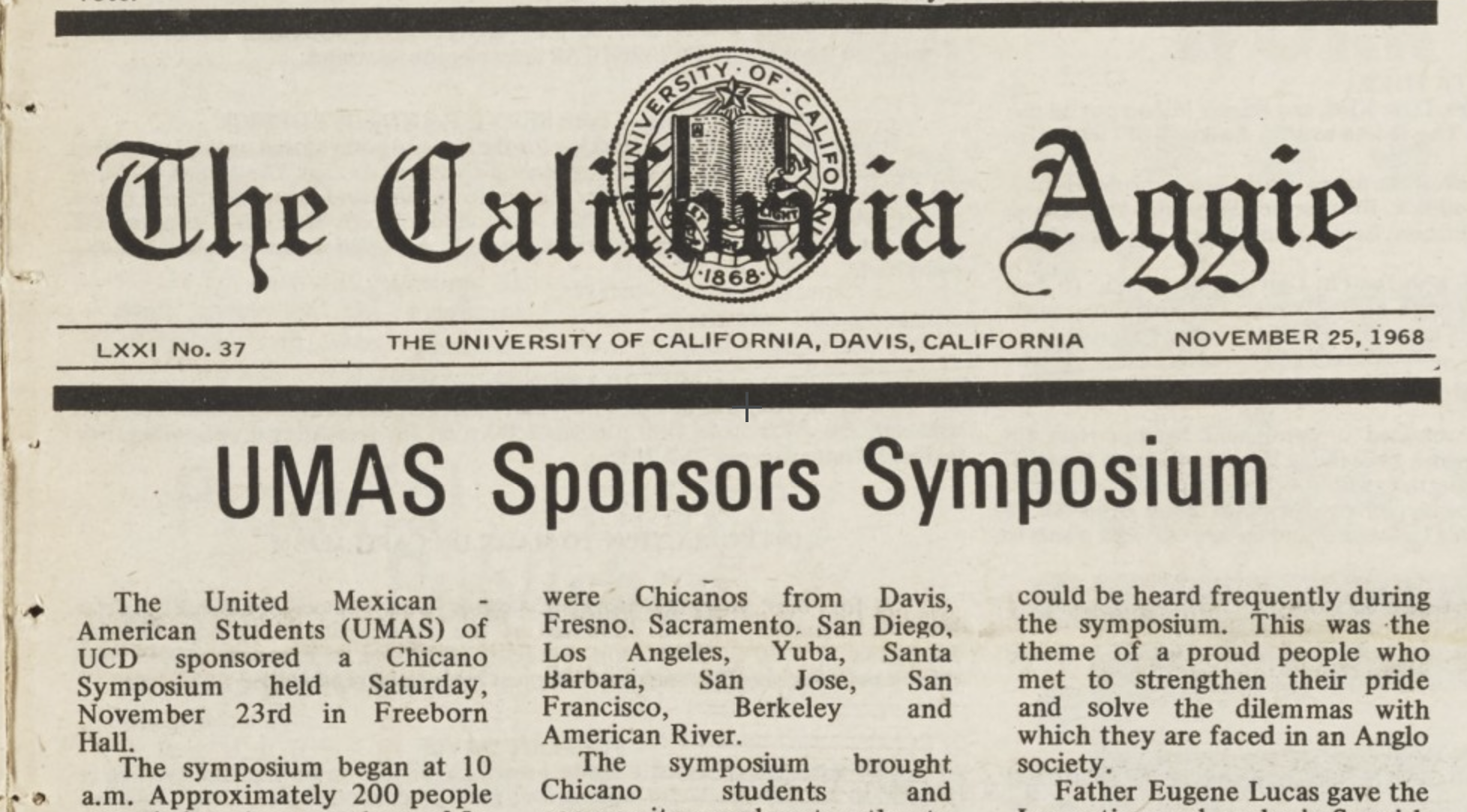Thomas O'Donnell, Ph.D., Principal Analyst, Office of Academic Diversity
twodonnell@ucdavis.edu
There is a rich history of Chicana/o activism on this campus stretching back to at least the mid-1960s. That is where this story begins.
One of the first mentions of Chicana/o student activism on campus that I have found so far is an article describing a symposium hosted by the United Mexican American Students (UMAS) of UCD in November 1968 when “approximately 200 people attended to hear speakers of La Raza expound on the problems, ideas and demands of La Causa.” The journalist reporting on the conference noted “‘Viva La Raza’ could be heard frequently during the symposium. This was the theme of a proud people who met to strengthen their pride and solve the dilemmas with which they are faced in an Anglo society.”

One of the featured speakers, Jose Montoya, a graduate of UC Berkeley and an art teacher at Wheatland High School railed against the plight of the Chicano students who were labeled “retarded, slow learners, and not college material by educators after they are given IQ tests based on reading comprehension of the English language…They are placed in ‘Special Education’ classes and considered impossible to teach.” Another speaker, Antonio Orendain, treasurer of the United Farm Workers Organization Committee from Delano spoke on the importance of the grape boycott and the plight of the Mexican farm workers in California.
At the end of their symposium they passed several resolutions including one to work for a “full Chicano studies program and the creation of a confederation of Chicano Student organizations.”
Thus, in this article we can see several key themes that appear in the sources throughout the next decade at UC Davis:
- The discrimination in education Chi/Lat students faced that derailed them from making college an option;
- The demand to create a curriculum that reflected their experiences, their values, and their strengths;
- The importance of creating communities and organizations that worked together to overcome Anglo obstacles and succeed together;
- The fight for farmworkers.
The next several articles begin to delve into how those demands developed over the course of the 1970s. We will begin with a brief overview of the context of higher education for Chi/Lat students in California in the 1960s. Anger over the discrimination they faced mounted in the 1960s as social revolutions roiled the country and a critical evaluation of white supremacy led many young people out of classrooms and into the streets to protest. At UC Davis, students, faculty, and staff made their own demands for an education–in the form of textbooks, course content, a major, cultural recognition, and representation–that reflected those protests. Organizing and activism on behalf of the Chi/Lat community at UC Davis was only just beginning in late 1968 as we shall soon see.
Read the next article in this series:

